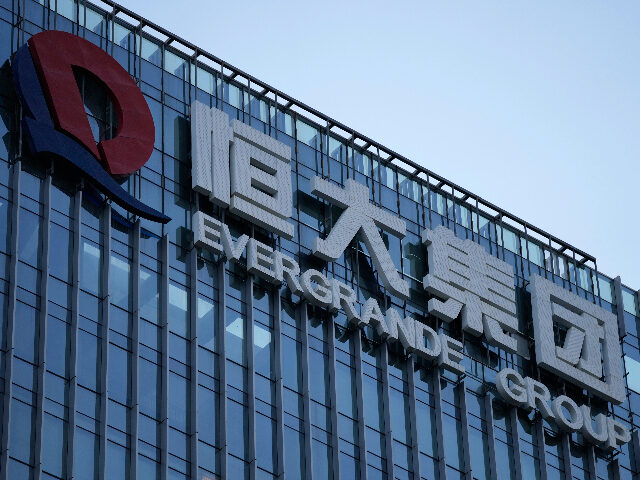The mystery surrounding the disappearance of China Evergrande founder Hui Ka Yan deepened Monday as another billionaire, Skyworth founder Wong Hongsheng, uncorked a WeChat video rant that essentially accused Hui of treason for trying to shelter his assets overseas.
“It is despicable that Hui has chosen to be the enemy of the Chinese people … by applying for the bankruptcy protection in the U.S. so he can leverage the confrontation between China and the US and hide his wealth,” Wong thundered, as translated by the South China Morning Post (SCMP).
“All of us entrepreneurs should take this as a warning. When we face difficulties, we should try our best to resolve them on our own. You can’t play a deceptive game to protect your wealth, and let the country and the people suffer,” Wong fumed.
Wong posted his tirade the day after the Wall Street Journal (WSJ) quoted “people with knowledge of Beijing’s decision-making” who said China Evergrande founder Hui Ka Yan was suddenly whisked off to “residential surveillance” detention last month because he was accused of trying to move assets offshore while his property empire collapsed.
Evergrande did file for bankruptcy protection in Manhattan in August. Hui Ka Yan’s ex-wife Ding Yumei fled Hong Kong for the United States last week, right around the time news of Hui’s detention began to circulate, a detail Wong mentioned in his rant. Ding was involved in the effort to restructure Evergrande’s debts.
Hui quietly disappeared in September while his titanic Evergrande Group tottered on the verge of collapse, crushed beneath $300 billion in debts it can no longer service or repay. Evergrande’s impending collapse could trigger a spectacular implosion of the Chinese property sector, bring the entire Chinese financial sector crashing down, and possibly blow out the windows in brokerages from Hong Kong to New York.
Investors grew even more nervous when they realized Hui, once the richest man in Asia, had vanished without explanation. The Chinese Communist regime remains tight-lipped about his status but, in late September, Bloomberg News reported Hui was under “police control” in an arrangement delicately described as “residential surveillance.”
These phrases imply some type of monitoring program or house arrest, but, in fact, Hui has been reportedly detained, stripped of his travel documents, and prevented from communicating with the outside world.
Bloomberg’s sources did not know what crime Hui was accused of, but that mystery has apparently been solved by the WSJ’s anonymous sources “familiar,” who claimed on Sunday that Evergrande’s founder “attempted to transfer assets offshore while the company was struggling to complete unfinished projects.”
Evergrande representatives confirmed Hui was under investigation last week, but did not explain why.
Deng Yuwen, former deputy editor of a Chinese Communist paper called the Study Times, told the SCMP that Hui “totally underestimated President Xi Jinping’s political determination to deflate China’s property bubble.”
“Beijing certainly wants to shore up the confidence of the private sector now, given the sluggish economy, but Xi will not be held hostage by private capital,” said Deng, contending it was no coincidence that news of Hui’s detention began to leak right before China’s National Day celebration last weekend.
“That shows Beijing’s concern on the potential illegal capital outflows, as it will weaken China’s ability to defend financial stability,” Deng said, alluding to the reported investigation of Hui for moving his assets overseas.
If Hui was trying to stash his own considerable assets in offshore safe havens while China’s real estate market disintegrated, he would become the target of overwhelming public outrage, and the last dregs of consumer confidence in China’s property market would evaporate.
Chinese homebuyers were so angered by delayed and canceled real estate projects that they launched a “mortgage revolt” or “mortgage boycott” in the summer of 2022, an almost unheard-of act of mass disobedience. Instead of punishing them for disobedience, the Communist regime backed down and offered refinancing, loan payment holidays, and assistance with kickstarting moribund real estate projects.
Evergrande’s investors were so furious that they took “revolt” to the next step and stormed the company’s offices, denouncing its managers as “swindlers” and demanding refunds for their financial products. At least one of the irate investors fainted while shouting that she wanted her money back.
Trading in Evergrande stock was suspended after news of Hui’s incarceration broke last week. On Tuesday, trading was restarted and the stock price picked up, possibly because investors interpreted the resumption of trading as a signal that Evergrande is finally making progress on restructuring its debt.
On the other hand, there is speculation that Evergrande’s last-ditch debt restructuring bid will fail, and the company could be liquidated by the end of this month.
Chinese state media has been laboring feverishly to construct a comeback narrative for the sputtering economy, but on Monday the World Bank reduced its growth forecast to the lowest level since the 1960s, announcing its decision just hours after the gala celebration of the 74th anniversary of the People’s Republic of China.
The World Bank cut its 2024 forecast for China from 4.8 percent to 4.4 percent, pointing to the imperiled property sector as a major factor in the downgrade. Forecasts for other Asian economies were trimmed back as well, although the World Bank’s East Asia and Pacific vice president, Manuela Ferro, said the region is still among “the fastest-growing and most dynamic in the world.”

COMMENTS
Please let us know if you're having issues with commenting.